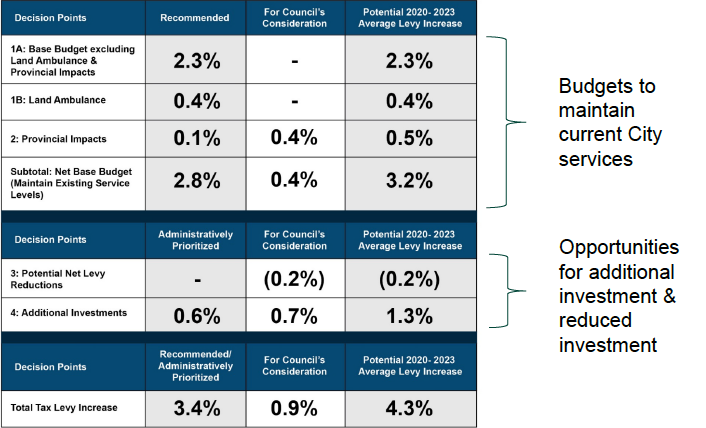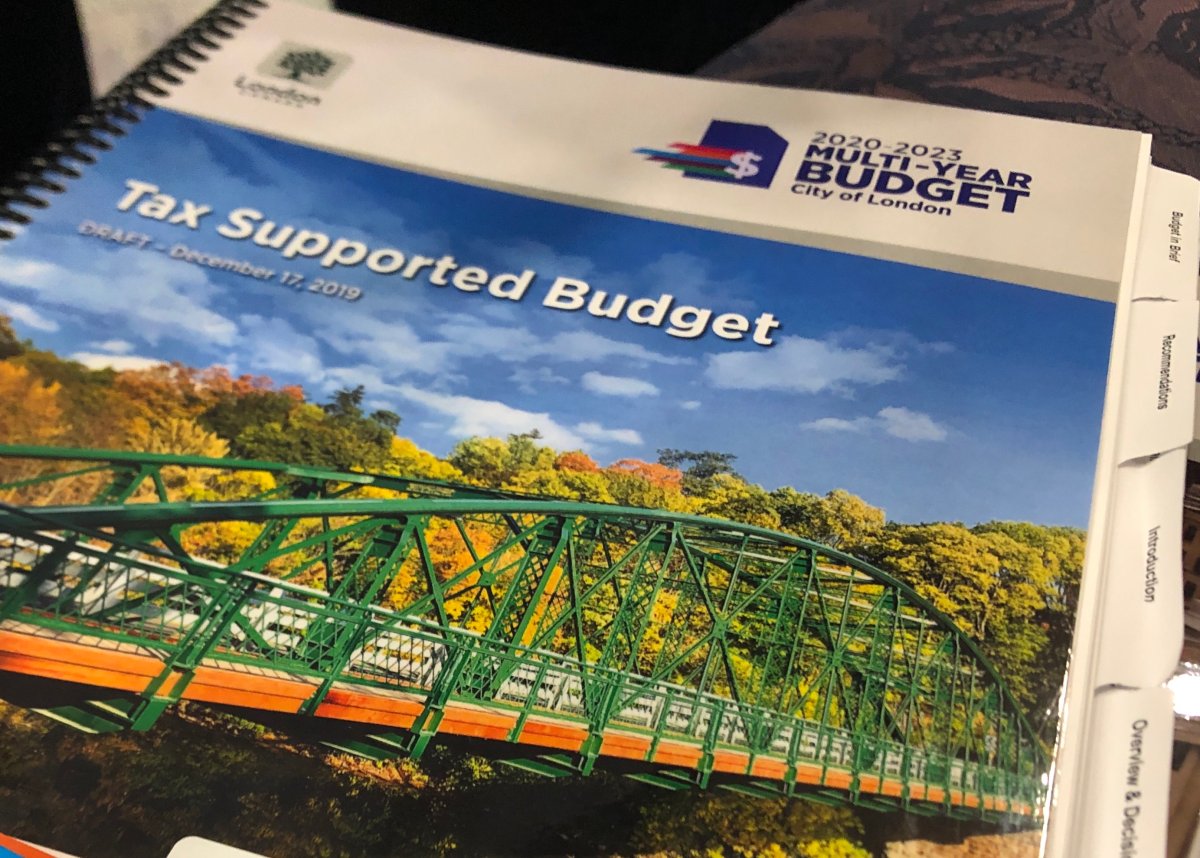City council for London, Ont., has approved the city’s new multi-year budget, but it will be another month before homeowners know exactly how much they’ll be paying.

At Monday night’s London council meeting, city politicians voted 12-to-3 in favour of the city’s new 2020-2023 budget of $2,684,600,789.
The budget carries with it an average annual increase of 3.9 per cent to the tax rate.
That will mean a 4.4 per cent increase for 2020, resulting in an extra $124 on the property tax bill of an average home assessed at $241,000. That will rise to 4.5 per cent next year.
However, that number could decrease for homeowners in April when discussions will be held at city hall to finalize its tax policy. Those discussions will centre around how the rates will be divided between residential, commercial, and multi-residential units.
Ward 7 Coun. Josh Morgan says residential homeowners will likely only see an increase in the mid 2 per cent range with commercial units seeing a higher rise.
The budget focuses heavily on housing and is one Morgan hails as “one for London’s most vulnerable.”
“This budget has a lot of investments for vulnerable members of our community and the hard work ahead is making sure that we turn that budget into actual action and results for Londoners facing housing issues, homeless issues, and really the vulnerable members of our community,” Morgan said.
“We have finally taken a step to try and combat what has been a growing crisis in our community.”

Get daily National news
Over the next four years, council approved $63 million in funding for homeless prevention and housing.
Other investments over the next four years include $18.9 million in waste diversion and climate actions, $6.7 million in transportation and transit and $21.8 million in the core area action plan, addressing issues in London’s core.
“I am proud of strategic investments contained in this budget that will drive continued economic growth, improve how Londoners get around our city, while also supporting London’s most vulnerable,” said London Mayor Ed Holder.
“Ultimately, we will be measured on results. I am fully confident we will deliver results on behalf of all Londoners while, at the same time, balancing care with cost.”
The budget also includes $13 million on planning and design for a new city hall and $15.5 million for London and Middlesex Community Housing for repairs to the city’s public housing stock.
Morgan told Global News they had some difficult decisions to make with the city having to decide what costs to take on as the province vacates different spaces.

“The provincial downloading was really less downloading and more a consequence of provincial decision-making, where there were a number of items where we had a choice, and some where we did not.”
Not everyone was in favour of the budget, with several councillors criticizing it for having to high a tax rate with councillors, Michael van Holst, Phil Squire, and Paul Van Meerbergen, all voting against the budget.
“What guides me is a reasonable tax rate for the people of London that is reasonable for people trying to find homes, apartments, affordable housing and unfortunately I can’t say this is a budget that furthers those particular areas,” Squire told fellow councillors.
Initial figures showed the annual increase ranging from 2.8 per cent to maintain exiting service levels to 4.3 per cent depending on what items councillors approved.

Van Meerbergen echoed Squire’s sentiments saying the budget would be eating into peoples’ income at twice the rate of inflation.
“It’s far too high of a budget, and it’s far too much for the people that have to pay the bill,” he said.
While the tax increases for 2020 and 2021 will be above four per cent, the increases for 2022 and 2023 are lower at 3.4 per cent and 3.3 per cent respectively.
Council also approved the Water and Wastewater budgets with an average 2.5 per cent increase for water rates and an average 3.4 per cent hike for wastewater and treatment rates. Those services are charges separately from the multi-year budget.












Comments